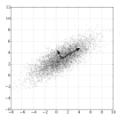This paper proposes a novel method for sparse latent factor modeling using a new sparse asymptotic Principal Component Analysis (APCA). This approach analyzes the co-movements of large-dimensional panel data systems over time horizons within a general approximate factor model framework. Unlike existing sparse factor modeling approaches based on sparse PCA, which assume sparse loading matrices, our sparse APCA assumes that factor processes are sparse over the time horizon, while the corresponding loading matrices are not necessarily sparse. This development is motivated by the observation that the assumption of sparse loadings may not be appropriate for financial returns, where exposure to market factors is generally universal and non-sparse. We propose a truncated power method to estimate the first sparse factor process and a sequential deflation method for multi-factor cases. Additionally, we develop a data-driven approach to identify the sparsity of risk factors over the time horizon using a novel cross-sectional cross-validation method. Theoretically, we establish that our estimators are consistent under mild conditions. Monte Carlo simulations demonstrate that the proposed method performs well in finite samples. Empirically, we analyze daily stock returns for a balanced panel of S&P 500 stocks from January 2004 to December 2016. Through textual analysis, we examine specific events associated with the identified sparse factors that systematically influence the stock market. Our approach offers a new pathway for economists to study and understand the systematic risks of economic and financial systems over time.
翻译:暂无翻译



